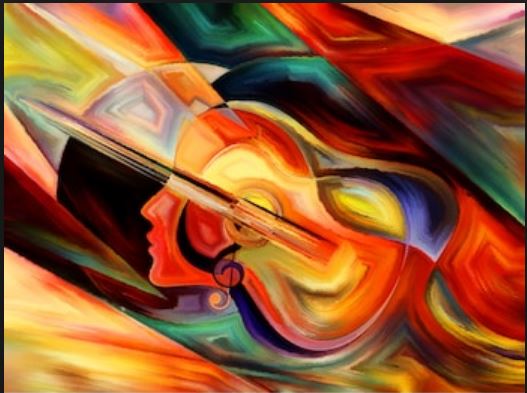What goes on when we see images in our mind? And is the strength and vividness of these images related to our ability to think creativity? Kathryn Friedlander talks us through the new findings from her recent journal article and argues that it all might depend on what kind of imagery we tend to conjure up.
Continue readingCategory Archives: Research Publication
Creativity and Leisure in COVID-19 – an update
We recently published our findings about creative pursuits under lockdown in a Frontiers Special Issue on ‘Creativity and Innovation in Times of Crisis (COVID-19)’. Here’s the take-away summary of what we found.
Continue readingLet’s Be Creative: What’s new in creativity research?
Philip Fine tells us about a newly published eBook looking at novel ways of researching creativity.

Though creativity has many definitions, it essentially describes behaviours which lead to novel and meaningful products and outcomes. We can observe creativity in all domains of human behaviour, thought and experience, including creative cognition and problem-solving (divergent thinking and insight), artistic performance (music, dance) and creative design and production (art, design, fashion).
The State of the Creative Art: What’s new in creativity research?
Philip Fine tells us about a new collection of articles looking at novel ways of researching creativity.

What is creativity? Why are some people more creative than others? What do we know about the creative process? How do people decide whether one product is more creative than another?
‘Great Creatives’ – are they really all male and white?
Gill Hill asks us to consider whether we are perpetuating the stereotype of the ‘creative white male’ in the incidental references to ‘Creative Greats’ we use in our talks and publications.
Solving the Puzzle of Expertise Research
Kathryn Friedlander takes a look at an alternative way of studying expertise, the Grounded Expertise Components Approach, suggesting that this might address some pitfalls of previous research.
We’ve all seen the long-running arguments over ‘expertise’ … Are the world’s greatest performers endowed at birth with a lucky genetic advantage? Or are they trained to excel through 10,000 hours of gruelling practice? Or perhaps a blend of both?
Are cryptic crosswords really ‘better than sex’?
Kathryn Friedlander explores the ‘kick’ we get from cracking a really good cryptic crossword clue.
A number of stories in the press earlier this year reported work carried out in Vienna and London on solving puzzles in a brain scanner. The study suggested that solving a clue to a puzzle can trigger a highly rewarding ‘Aha!’ (or ‘Eureka!’) insight moment, which releases dopamine into the brain. This is the reward chemical associated with daily activities such as eating, winning money … and having sex. This led to headlines promising that cryptic crosswords were ‘better than sex’… but what’s the reality behind the hype?
Why are psychologists playing games?
Gill Hill explains why investigating creative problem solving is sometimes – quite literally – child’s play.
People might be surprised to hear that the games they played as children can help scientists to explain how people think. For example, researchers have recently used rock, paper scissors as a model for decision making. Furthermore, chess is seen as a pursuit for ‘thinkers’ around the world, and we have consequently seen lots of research exploring psychological processes whilst people play.
Creativity ‘special issue’ – call for participation!
Novel Approaches for Studying Creativity in Problem-Solving and Artistic Performance – a Frontiers in Psychology Research Topic, coming out in March 2018
Kathryn Friedlander invites creativity researchers world-wide to contribute to an exciting Frontiers in Psychology Research Topic, which went live last week.
Shouldn’t research into ‘creativity’ be pretty creative itself?
Philip Fine and I certainly think so, which is why we’ve been working with Frontiers in Psychology over the past few months to launch a new Research Topic looking at ‘Novel Approaches for Studying Creativity in Problem-Solving and Artistic Performance‘. The topic went live last week, and together with our other co-editors Roger Kneebone, Ian Hocking, Amory Danek and Bill Thompson we are busy advertising this opportunity as widely as possible, to connect with potential contributors. Do you fit the bill?
